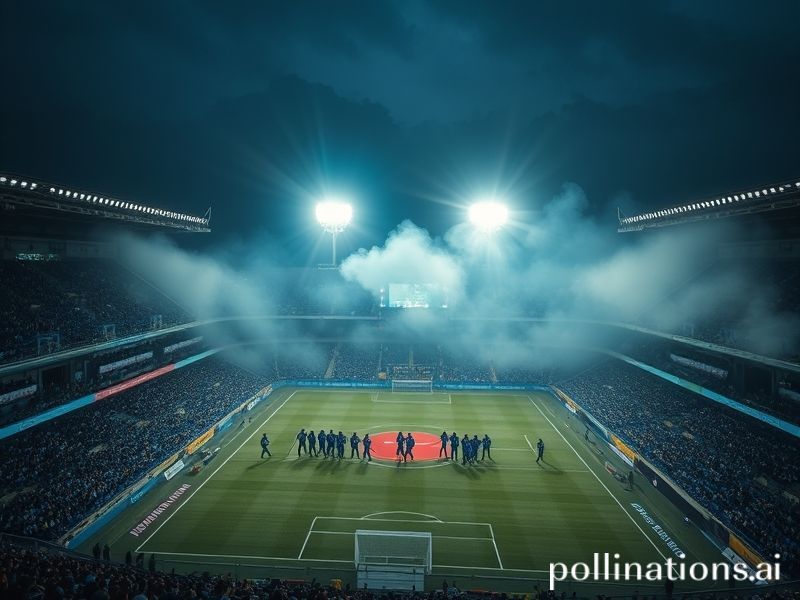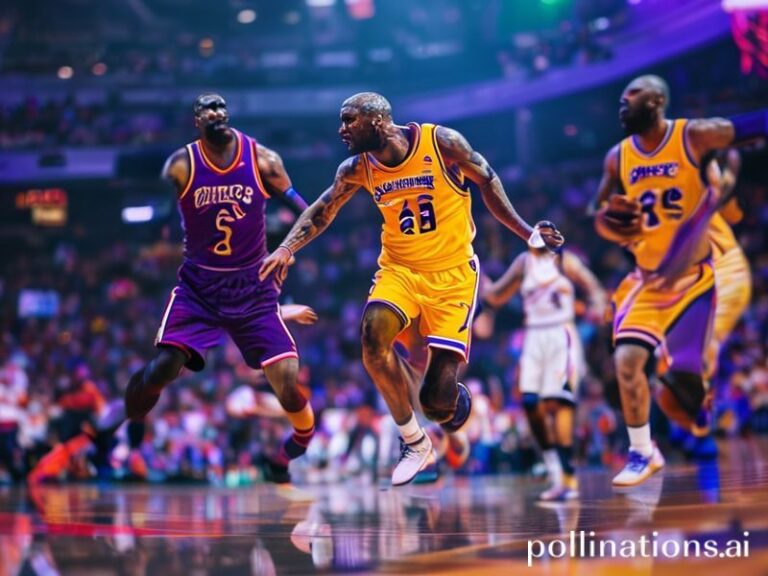Alianza Lima: How a Peruvian Football Club Became the World’s Favorite Cautionary Tale
Alianza Lima and the Delicate Art of Global Schadenfreude
By Dave’s International Desk
When the Peruvian Football Federation ordered Alianza Lima to play their home matches behind closed doors last month, the planet barely blinked. After all, a stadium ban in Lima ranks somewhere between a crypto-exchange bankruptcy in Singapore and a ministerial resignation in Slovenia on the Richter Scale of World Interest. Yet the ripple effects—like most things in football and geopolitics—are less about the incident than about what the incident reveals: namely, that humanity will forgive corruption, mismanagement, even match-fixing, but heaven help the club that forgets to submit its stadium safety paperwork on time.
Alianza Lima, founded in 1901 by blue-collar dockworkers and now owned by a holding company with fingers in everything from quinoa futures to questionable port concessions, is more than Peru’s most decorated team. It is a 123-year case study in how a sporting brand can mirror the neuroses of an entire nation. Peru’s economy grew 2.7 % last year—modest, yes, until you remember it grew on the back of copper, cocaine eradication grants, and the faint hope that tourists will pay premium rates to watch llamas pose for Instagram. Alianza’s balance sheet follows the same trajectory: technically solvent, emotionally bankrupt.
Globally, Alianza’s current predicament lands somewhere between metaphor and punchline. European super-clubs—busy stapling NFTs to their sleeves and scheduling friendlies in Riyadh—glance south and see only a cautionary tale about infrastructure. Meanwhile, FIFA’s shiny new Club World Cup expansion (32 teams, three continents, one very tired lawn mower) quietly assumes that teams like Alianza will either modernize or politely disappear. FIFA, after all, is the organization that fines you for human-rights abuses but will happily re-elect you if you promise to install VAR.
The Alianza Lima saga also highlights the global pastime of weaponized nostalgia. Every continent now markets its own sepia-tinged underdog story: Leeds United, AS Saint-Étienne, Boca Juniors on days when Boca forgets to bribe the referee. Alianza’s 1987 plane crash—when the entire squad perished save the pilot and a reserve goalkeeper who’d stayed home with the flu—has become a sort of macabre heritage brand. The crash is invoked any time the club needs stadium subsidies, tax deferrals, or simply a moral exemption from away-game traffic fines. Grief, Inc. is a growth industry; Alianza holds majority shares.
Financially, the club owes roughly $8 million to assorted creditors, including a Colombian catering conglomerate that insists on being paid in dollars, not Peruvian sols whose value fluctuates with every presidential tweet. Eight million is pocket lint to Manchester United’s debt department, but in Lima it’s enough to keep the lights off at the training ground, which is ironic because the players could use the darkness to hide their tactical playbook (rumor has it the coach still thinks “4-4-2” is a kind of tax form).
The international implications? First, a reminder that soft power is a fickle mistress. China builds stadiums in Africa; the United States buys English clubs to launder reputations; Qatar buys everyone else. Peru’s bid for relevance involves exporting stadium chaos as a warning: fail to diversify your economy beyond raw commodities and raw emotion, and you too can watch your football league become a Netflix docu-series titled “Mid-Table Purgatory.” Second, Alianza’s travails feed the global content machine. European fans now live-tweet Peruvian league matches for the sheer exotic novelty of seeing flares launched at a linesman who’s still wearing the same Adidas kit from 1998.
And so the world spins. Somewhere in Lima, an Alianza ultras group is printing T-shirts that read “Closed Doors, Open Hearts,” blissfully unaware the phrase was focus-grouped by a marketing intern in Miami. Somewhere in Zurich, FIFA executives are Googling “minimum seating capacity for elite competition” while pretending not to see the WhatsApp messages from Lima’s mayor offering to rename the airport after Gianni Infantino. And somewhere in cyberspace, a teenager in Jakarta is buying an Alianza retro jersey because nothing says authentic rebellion like the badge of a club your parents have never heard of.
Conclusion? The planet has learned to monetize misery in 4K. Alianza Lima may or may not fix its roof, pay its debts, or win another title. But the club has already achieved immortality: it is now a globally exportable symbol of what happens when passion meets paperwork and loses on penalties. In the grand bazaar of modern sport, that’s a product with shelf life. After all, everyone loves a train wreck—especially when the train is painted blue and black and owes you eight million dollars.







